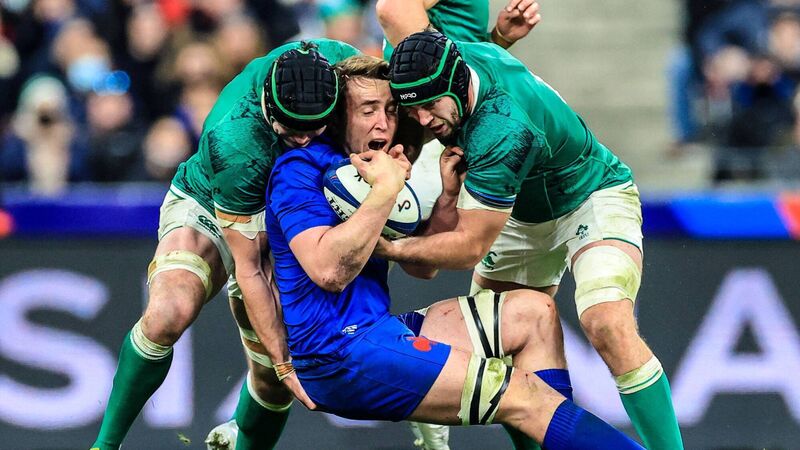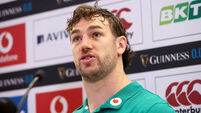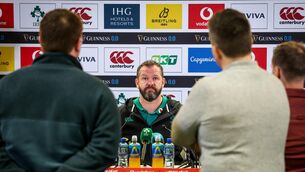Donal Lenihan: Short-term pain, but plenty of gain in the long run for Ireland

TIGHT SQUEEZE: France’s Anthony Jelonch is tackled by Ireland skipper James Ryan and back row Caelan Doris in Saturday’s 30-24 victory for Les Blues.
Now we know. Ireland are a very good side but, at the moment, France are just that little bit better. The challenge for Andy Farrell and his management team is to close that gap between now and the World Cup in 19 months’ time.













